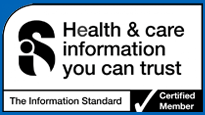Talking therapies can help all sorts of people in lots of different situations. You may also hear them referred to as talking treatments or psychological therapies.
Talking therapies work just as well whether you're old or young, male or female, black or white, gay or straight, rich or poor. Your educational background makes no difference either.
Talking therapy is for anyone who's going through a bad time or has emotional problems they can't sort out on their own.
For many adults, they may be the same or more effective than medication.
Can you get talking therapies on the NHS?
You may be able to get a talking therapy on the NHS in your area. You're most likely to be referred for counselling or cognitive behavioural therapy (CBT). CBT helps you understand how your feelings affect your thoughts and behaviour.
Your GP can refer you, or sometimes you can refer yourself to your local psychological therapies team.
You may have to wait a few weeks for it to start and may not have much choice in who you see.
Read about talking therapies on the NHS.
Talking therapies are also widely available privately. Find out more about the different types of therapies available.
How a talking therapy can help
Sometimes it's easier to talk to a stranger than to relatives or friends. During talking therapy, a trained counsellor or therapist listens to you and helps you find your own answers to problems, without judging you.
The therapist will give you time to talk, cry, shout or just think. It's an opportunity to look at your problems in a different way with someone who will respect you and your opinions.
Usually, you'll talk one-to-one with the therapist. Sometimes talking treatments are held in groups or couples, such as relationship counselling.
Although there are lots of different types of talking therapy, they all have a similar aim: to help you feel better. Some people say that talking therapies don't make their problems go away, but they find it easier to cope with them and feel happier.
Talking therapy for mental health problems
Talking therapies can help if you have:
They're often used if you've been diagnosed with a serious mental health condition, such as schizophrenia or bipolar disorder.
Talking therapies are commonly used alongside medicines.
Talking therapy after difficult life events
If you're going through a sad and upsetting time, talking therapies can help you deal with it. This could be after a relative or friend has died, after finding out you have a serious illness, if you're struggling with infertility, or if you've lost your job.
Physical illness and talking therapy
People with long-term health conditions are more vulnerable to depression, and talking therapies have been proven to help.
Talking therapies may improve your quality of life if you have:
Talking therapy for the over-65s
Older people, especially those with depression, are as likely to benefit from talking therapies as everyone else.
Depression in later life, especially over the age of 65, is often dismissed as a normal part of ageing. But this isn't the case, and talking therapy can improve your enjoyment of life if you're feeling low.
Take this short test to see if you're depressed.
Talking therapy and past abuse
If you've been physically or sexually abused, or experienced discrimination or racism, you may feel able to cope with life better after a course of talking therapy.
Talking therapy for relationship problems
Couples therapy can save a relationship that's in trouble or help you through separation and divorce. Ideally, a couple should go to counselling together, but if your partner refuses to join you, counselling can help you sort out lots of things on your own.
Read about how to have a healthy divorce.
Troubled families and talking therapy
Family therapy is talking therapy that involves the whole family. It can be especially helpful for children with depression or a behavioural problem, or whose parents are splitting up. It can also help families where someone has an eating disorder, mental health condition, or addiction.
Talking therapy for anger
Talking therapy can help people who find it difficult to keep their anger under control.
Read about how to manage anger.
Children's talking therapy
Talking therapy works as well for children as it does for adults. The National Institute for Health and Care Excellence (NICE) recommends talking therapy rather than medicines for children who are depressed.
See the NICE guidelines on depression in children and young people.
It can also help children with anxiety, attention deficit hyperactivity disorder (ADHD), or who are in physical pain much of the time.




